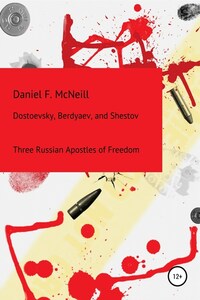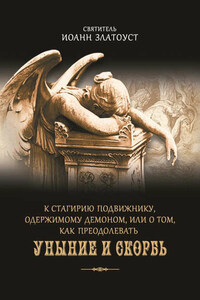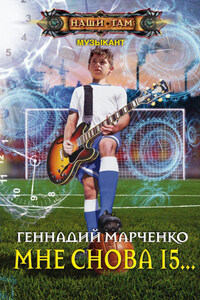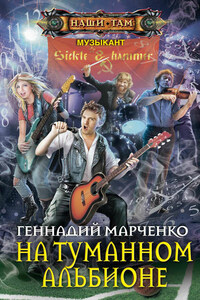Russia geographically is so huge that something inside a Russian feels without limit. No matter how strongly Russians are controlled politically, they still feel that something within them, some sense of themselves that arises freely in their souls, can never be controlled. The soul cries out that it should not be ruled by anything, neither by a power in the outside world nor by some power in the mind. At times something wonderful comes alive in the Russian soul, something infinitely gentle and unworldly. Even when such moments pass, Russians refuse to believe their souls are empty and worthless. This belief gives the soul the strength to endure anything coming at it from the outside world.
Western European values based on materialism and scientific rationality entered Russia in the 18th century. They did not fit smoothly with Russian customs. Tsar Peter the Great imported Italian and French artists and architects to build the city of Saint Petersburg using eighteenth-century technologies. The result was a strange artificial city placed on Russian soil as if from nowhere. Fyodor Dostoevsky, the nineteenth-century Russian novelist, wrote that the Tsar’s city, Saint Petersburg, is “the most abstract and intentional city on the whole terrestrial globe”. The idea that a city could be produced intentionally stuck in Dostoevsky’s mind. If a whole city resulted from a premeditated rational idea, what prevented people in an intentional city from acting intentionally? And if architects could create a city intentionally, why could not he, Dostoevsky, create a novel with a hero who acts only intentionally and refuses to act naturally like those around him?
Let’s follow his young intentional hero through the streets of Saint Petersburg in the 1860s. Where is the young man, Raskolnikov, going? He is on his way to visit a sixty-year-old woman, a pawnbroker. He has visited her before and pawned objects for money. He is dressed negligently and is in need of money. He lives in a very small room, has little means and is thin and poorly nourished. He enters the woman’s apartment and talks with her about how much money she will give him for a watch.
She gives him one rouble and fifteen kopecks but money this day is not his only object. Raskolnikov intends to experiment intentionally with reality rather than let reality experiment with him as do most people. He is going to test Western European rationalistic culture. Such culture exists inside him because he is perfectly capable as are other Petersburg students of acting rationally. It is in fact the easiest thing in the world to be rational and act rationally but something urges him to carry rationality to an extreme, to test how far rationality can go.
Where did Saint Petersburg come from? Why is Tzar Peter the Great’s “intentional” city here? Where is the spiritual freedom and cultural independence of the Russian past? Why are some people around him as he walks to the pawnbroker dressed in Western European style clothes? Don’t they see that they look odd compared to the way most people in Petersburg dress? He too when he dresses well is peculiar just like they. And all the socialist agitators in his neighborhood, don’t they realize that their ideas are unseemly, that their revolutionary desire to create some new world is illusory? Raskolnikov is going to find out if an action motivated by nothing at all except a rational intention born in his own mind and nowhere else can be authentic. Why should not a rational person, if he must live guided by his reason because he lives in a modern abstract and intentional city, not be allowed to do anything at all that can be conceived rationally? A rational being like young Raskolnikov might act rationally in order to do something that the masses of people think despicable, evil, insane, but could not a man superior to the masses prove his superiority by daring to do something of the sort? He might use his reason to the extreme to establish his superiority just as the rational Western European architects went to a rational extreme by constructing Peter the Great’s “intentional” city. If rationality is the final destiny of all humans, something they must adopt to conduct their lives whether they like it or not, if rationality is everything then everything must be able to be done rationally, and even an insane terrible act should not have an irrational result in a feeling of guilt or shame if it is done intentionally. Raskolnikov has been alone brooding and thinking in his small room for many days avoiding human contact. He visits the pawnbroker not just for money but also to examine the inside of her apartment. One idea dominates his being, the idea of slicing an axe into the skull of the old pawnbroker simply to prove to himself that he could carry out rationally any act no matter how terrible.
Dostoevsky knew that Russian holy men of God are not motivated by the mind but by feelings that come from the heart. But why could he not create a new opposite type of holy man, a sort of holy man in reverse, a man who dares to draw his inspiration not from the feelings within his heart but from the ideas in his mind? Raskolnikov wants to use his mind to go beyond the normal mind. His mind and his self have become the same thing. He does not want to have anything to do with feelings of any kind. The miserable people around him on the streets of Petersburg are full of feelings because in their misery they have no tool to try to escape from their poverty except their feelings which are petty and inspired by their misery and just lead to more misery. Raskolnikov is a creature of bourgeois culture living in his mind and willing to test his mind to the extreme to experience its limitless power. Dostoevsky’s ultimate message in his novel Crime And Punishment is that to live guided by ideas alone turns you yourself into a kind of abstract being that is no longer your true being. The living soul within you becomes a thing if you become instead of a living human being an idea directing the way you act.
Yet as Raskolnikov walks along the street in Petersburg after his meeting with the old pawnbroker, he feels the need for human contact. He has been alone for many days in his little shabby room avoiding contact with people, living in his mind forgetful of normal life. He comes to the entrance to a cheap tavern and decides to go in and drink a beer. He is a young handsome student whose mind has taken hold of him completely and driven him to try to live in a realm beyond that of normal people. But here in the tavern the side of himself that is normal comes to the surface and he feels “suddenly set free from a terrible burden”. His burden, his problem is the power his mind exercises over his actions. A Russian critic of the 19th and 20th centuries, Lev Shestov, put the problem of living as an idea, Raskolnikov’s problem, in this way, “Man does not dare or has no power to think in the categories in which he lives, and is forced to live in those categories in which he thinks.” Raskolnikov has been living alone, estranged from society, living in the categories where he thinks. It is the problem of the Russian soul. A Russian wants to think only in the categories where he lives and he is horrified when something makes him live in the categories where he thinks. Raskolnikov’s passion is to live always where he thinks and nowhere else but drinking his beer in the tavern he does escape for a time living where he thinks because he is among poor drunken common Russians who are incapable of doing anything but think where they live. Raskolnikov feels “suddenly set free from a terrible burden” but he also has “a dim foreboding that this happier frame of mind was…not normal”. How long will he be free from his “terrible burden”? He will eventually have to leave his beer and his tavern and the world he faces outside will again make him think and thinking will again make him live in the categories where he thinks cut off from all regular human experience.








